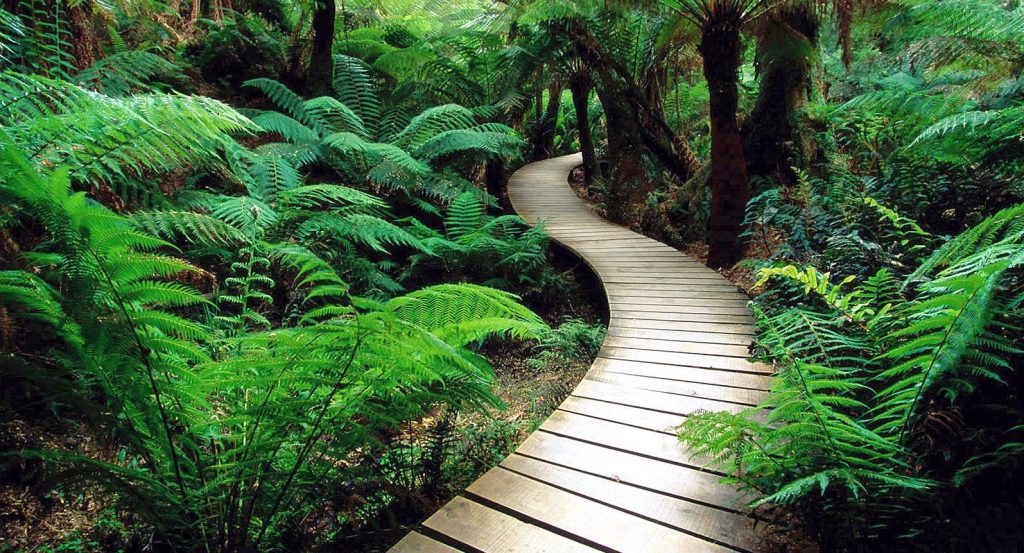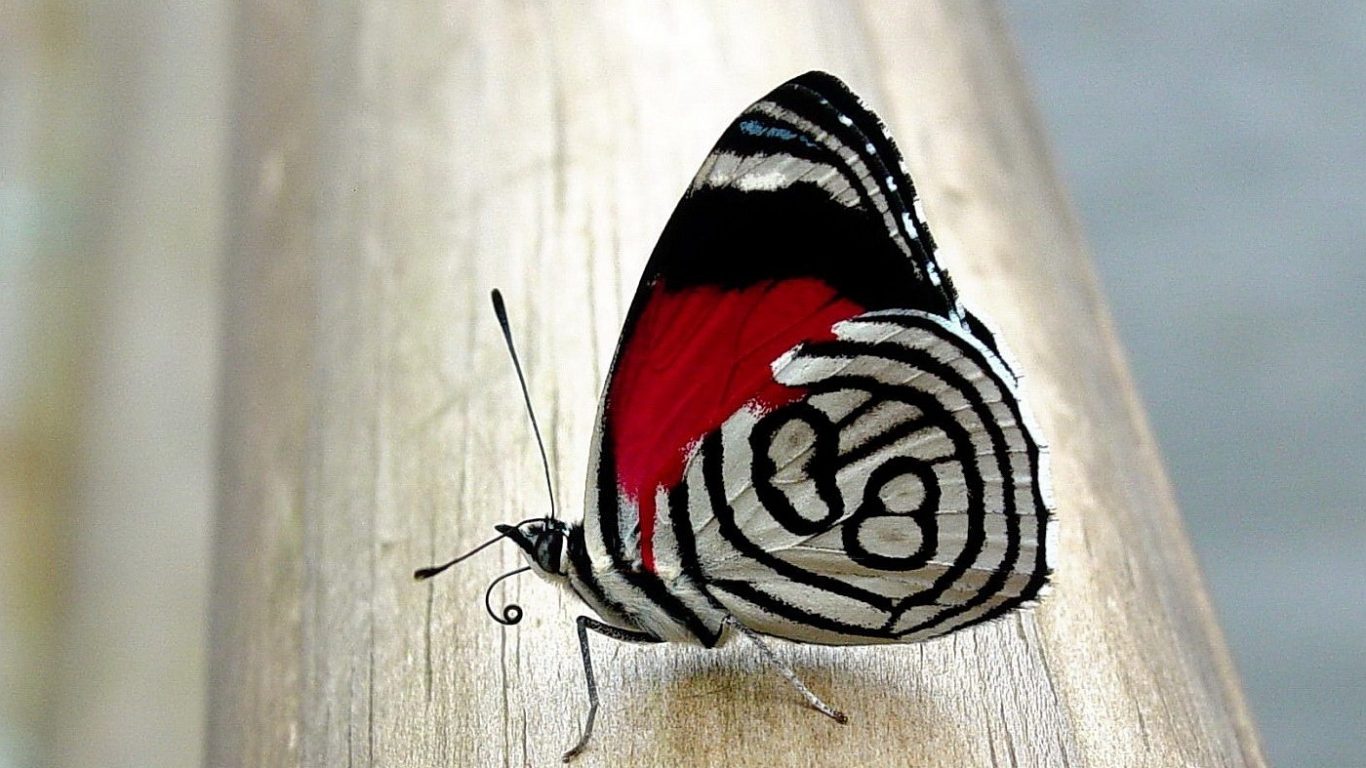The Mental Health Benefits of Nature

Overview
Nature is exceptionally good for BOTH our mental and physical health. Regular mindful exposure to naturalistic stimuli (including Nature Sounds, and calming Nature Imagery) is an evidenced-based Self-Care strategy with a solid physiological backing: Nature has powerfully soothing and restorative effects that can bring soothing and balance to our nervous systems and it can promote and facilitate recovery from both physiological and psychological stress.
However, with increasing urbanization, more ‘screen-time’, and more pressure to achieve, our modern societies are driving many of us towards focusing on ‘doing more’, ‘being more’, and ‘having more’. Yet, this all comes at a cost: Disconnection from the natural world around us leads to negative effects within us both emotionally and psychologically (and spiritually, as suggested by many spiritual and also non-religious Traditions which date back thousands of years).
Below, you will discover how even simple, brief encounters with Nature can have powerful and restorative effects on both your brain and your parasympathetic nervous system (responsible for stress reduction). You will also discover ways you can learn to slow down, immerse yourself in nature, and cultivate a state of mind that is most receptive to its benefits.
Urbanization & Health Problems
Over 50% of people now live in urban areas. It has been estimated that by 2050 this proportion will be 70%. Urbanization has many benefits, but it also is associated with increased levels of mental illness, including depression. We know that worry and stress are on the rise. Cancer is on the rise. Mental health problems are on the rise. Yet, our contact with Nature is on the decline.
There is strong evidence dating as far back as early Greece and ancient China that humans have long been aware that being in Nature can have a profound ability to eliminate stress and bring a deep sense of calm.
But, What Does the Science Say?
Science Says: Nature is good for our well-being!
Nature has such a powerful ability to bring us peace – and this can be measured psychologically, and at a deep physiological level. Here’s why: Nature has powerful effects on the mind, the body, and the heart.
For instance, a recent study found that being in nature for just 90 mins reduces activity in an area of the brain associated with rumination, a precursor for worry, stress and depression. The researchers had two groups of people walk for 90 mins in either Nature, or an urban setting. They found that people who walked in the natural setting not only reported reduced rumination, but the researchers found that the nature-group had less neural activity in the subgenual prefrontal cortex (part of the brain active during periods of rumination), whereas a 90-min walk in an urban setting had no effects on either participant-reported rumination or neural activity.
A similar study examined the benefits of spending just 50-mins in Nature vs. walking in an Urban setting. The study randomly assigned sixty participants to a 50-min walk in either a natural or an urban environment and observed improvements in the Nature walking group for: anxiety, rumination, negative affect, and working memory.
In another study, researchers in Finland found that urban dwellers who strolled for as little as 20 minutes through an urban park or woodland reported significantly greater amount of stress reduction than those who strolled in a city center.
And, again, other researchers have found that compared to walking in an urban setting, walking in Nature resulted in a reduction of reported negative mood states and anxiety levels. The researchers also found walking in Nature was related to significantly lower heart rates and higher heart rate variability (an indication of more relaxation and less stress) than when these same people walked in an urban setting.
These are just some of the many new pieces of research highlighting the benefits being in Nature has in reducing stress and improving our mood and our psychological functioning. Yet, despite the immediate benefits, for many of us living modern lives and really needing to prioritize Self-Care, enhancing our connection with Nature remains of low priority or is still an afterthought.
As you read some of the more recent and impressive findings below, consider ways that you could apply some of this research into your life so that you can maximally benefit from your engagement in and connection to Nature (after all, we come from Nature, are thus of Nature ourselves, and this probably explains why we respond so well to it and so perform so without it).

The Science: Natural vs Artificial Sounds
Even recordings of Nature can be beneficial. A recent study found that humans respond more positively to the sounds found in nature than to artificial sounds even when both are played to participants vs heard in their natural settings (!). How? The brain activity of participants exposed to natural sounds indicated an increase in activity associated with an outward-directed focus of attention, whereas for artificial sounds participants’ brain activity reflected an inward-directed focus of attention similar to states observed in rumination, anxiety, post-traumatic stress and depression. In other words, Nature Sounds ‘open’ us up to being more outwardly-focused, whereas artificial environmental noise effectively ‘shuts us down’.
The researchers also found a benefit in terms of increased in Heart Rate Variability (associated with relaxation of the body) when listening to natural compared vs. artificial sounds, and better performance in a sustained attention task. As a psychologist, this is a valuable finding, because these are the same brain and body effects involved when we are working with our Soothing System (eg, via Soothing Rhythm Breathing), which we know can deactivate our brain’s Threat System.
The Science Behind Forest Bathing: A Deliberate Mindful Connection with Nature
‘Forest Bathing’ is a recent term to describe the act of bringing of deliberate, conscious, and present-awareness (i.e., ‘Mindfulness‘) to the experience of being in Nature in order to gain the maximal benefits that this experience can provide.
A recent UK study set out to compare the act of ‘Forest Bathing’ vs. two previously established evidenced-based well-being interventions (already known to be effective in increasing Heart Rate Variability and other markers of reduced stress and well-being). It found that the Forest Bathing condition achieved equivalent benefits to the established interventions – without participants having to ‘do’ anything other than to simply participate in being present to the Nature experience (!). In other words, the study found like the other interventions, people who engaged in Forest Bathing ALSO experienced improvements in positive emotions, mood disturbance, rumination, nature connection and compassion and these participants also showed an increase in heart rate variability (!).
The Science Behind Online Forest Bathing
Given our brains respond better to natural (vs artificially created) audio-recordings of nature sounds, and given we respond best to the positive effects of Nature when we are deliberately attending to the experiences, researchers have combines the two to demonstrate that even online Forest Bathing has benefits! This is an extremely important finding, particularly for people who have mobility difficulties or for times when we may have have difficulties getting outside to access nature.
What? Twenty-two individuals with Long-COVID symptoms completed weekly online surveys during a four-week waitlist control period, before engaging in four weekly (1 hour) online forest bathing sessions (i.e., 4 hours of online Forest Bathing in total!). The researchers found statistically significant improvements in Anxiety (a 49% decrease), Rumination (a 48% decrease), Social Connection (a 78% increase), and Long-COVID symptoms (a 22% decrease). Moreover, written qualitative comments by participants indicated that they experienced feelings of calm and joy, felt more connected socially and with nature, and experienced a break from the pain and rumination surrounding their illness. Impressively, benefits occurred after participating in just 1x hour per week for 4 weeks (i.e., 4 hours of online Forest Bathing in total!).
One explanation for why genuine high quality audio and visual ‘recordings’ of nature can have positive effects (even though they may be recordings) is that our brains do not know the difference. Unsurprisingly, the power of audio-visual experiences of nature have even led certain people to experience well-known depressive-like withdrawals when they have felt immersed in and connected with beautiful depictions of nature, such as with the Avatar movie series.
Although making use of our brains ‘not knowing the difference’ can be a positive experience, sadly these same processes are what also give rise to common psychological problems such as depression and anxiety. For example, we can get side-tracked by the mind’s thoughts and images about the past, or its predictions and images about the future. And if we are unaware that we are engaged in this process – because we can feel consistent with what our minds are focusing on – we can hijack our present emotional state with painful images about the past (leading to anger, sadness, or regret) or frightening thoughts about the future (leading to anxiety, fear, stress, or panic). For an in-depth exploration of these these processes (including a discussion of helpful tools you can use) please visit my articles about our Brain’s Threat System and how to deal with Negative Thinking.
Try This:
If you would like to experiment (for free) with the relaxing effect of listening to high-quality Nature Sounds, I highly recommend visiting the following page: https://earth.fm/
The website contains a collection of hundreds of hours of professionally-recorded soundscapes made by some of the world’s most prominent sound recordists. Recordings have been made in rare and remote locations in the world, where the sounds of humans can not be heard.
When listened to with quality headphones or speakers (a phone cannot produce the full frequency range we can hear) you will experience a realistic representation of the full-range of sound in a particular habitat or location. If you sit back, close your eyes and relax while listening to a well-recorded soundscape, it won’t take long before you begin to feel you’re actually there!
All recordings are of pristine natural soundscapes free from human influence, of which (sadly) there are fewer and fewer every day.
To customize your searches, try clicking on the ‘settings’ button to the right of the search bar within Earth.FM which allows you to select your desired Mood, Habitat, Animal Type/s, and Duration of recording. Australia’s Marc Anderson and George Vlaad in particular have some of the longer and highest quality recordings.
Why Are We Not Getting Enough? Affective Forecasting
Despite the benefits of being in Nature – why aren’t we getting more of it? One possibility is related to ‘affective forecasting’ errors (i.e., biases in thinking such as ’emotional reasoning’, and incorrectly ‘predicting the future’). These are errors in perception that happen when we incorrectly predict that something won’t make us feel good, because we don’t feel good when we are making the prediction. Affective forecasting errors are very common thinking biases among people experiencing anxiety and depression (eg “I don’t feel motivated, therefore I probably won’t enjoy x, y, z”).
In terms of affective forecasting and Nature – these researchers found that although outdoor walks in nearby nature made participants much happier than indoor walks did, to the extent that people made affective forecasting errors they failed to maximize their time in nearby nature and thus missed opportunities to increase their happiness and relatedness to nature.
In other words, when we engage in predictions based on our current emotions (eg about how positive we may feel about something in the future) we get it WRONG. Worse, the extent that we make decisions and get it wrong is directly related to the amount of positive emotion we are effectively robbing ourselves of experiencing. Moreover, the worse we feel when we are making future predictions, the more inaccurate we can be (and so the cycle continues). This is once of many complex patterns that can maintain anxiety and depression! You can read more about how to help yourself begin to break free of negative thinking here.
“I’m BUSY – How Long Will it Take?”
Within 10 Minutes:
A 2020 meta-analysis of 14 studies representing data from over 600 college-aged students found as little as 10 min of sitting or walking in a diverse array of natural settings significantly and positively impacted defined psychological and physiological markers of mental well-being.
Another study found forest walking to significantly increase parasympathetic nervous activity and significantly decrease sympathetic nervous activity (according to heart rate variability measurements) compared with an urban walking condition. Differences emerged within the first 10 min.
Within 20 – 30 Minutes:
These researchers found the greatest benefit of ‘time’ in nature as measured by salivary cortisol and alpha-amylase levels (two established two physiological biomarkers of stress) was between 20 and 30 min, with benefits continuing to accrue after this time at a reduced rate.
Within 50 Minutes:
Affective benefits (decreased anxiety, rumination, and negative affect, and preservation of positive affect) as well as cognitive benefits (increased working memory performance) were observed for participants who walked 50-min walk in a natural environment (vs participants who walked for the equivalent time in urban an environment).
Within 90 Minutes
These researchers found a 90-min walk in a natural setting, decreases both self-reported rumination and neural activity in the subgenual prefrontal cortex (sgPFC). These results can not simply be explained away as the effects of “exercise” because they also studied a group of people who walked for the same amount of time in an urban setting (see ‘B’ in the image below) and found that 90mins of walking in an Urban setting had no such effects (!).
Interestingly, as can be seen in the image below, the ‘natural setting’ (A) is not even really all that ‘remote’ or far away. It is typical of many large parks accessible to many and the route walked in both conditions averaged just 5.3kms.

2 Hours (spread across a week)
Self-Reports obtained from over 19,000 UK participants by these researchers found statistically significant benefits to well-being for those who spent at least 120 minutes per week in nature.
Importantly, it did not matter how this contact was achieved (e.g., one long vs several shorter visits to nature in a week).
This pattern was consistent across key groups including older adults and those with long-term health issues.
How to Maximize Nature’s Benefits: BE PRESENT!
1. S L O W D O W N !!!
The findings from Forest Bathing and the other studies mentioned above clearly demonstrate that when we slow down to appreciate natural beauty, we BENEFIT in many ways. Interestingly, we now know that people who allow themselves to be more emotionally aroused by this experience are also those who tend to report greater life satisfaction (!). For instance, a study of 1000 people found that connection with nature predicted life satisfaction, particularly for people who scored highest on perceiving nature’s beauty. This finding was consistent, irrespective of age, gender, or personality traits. So: Learning to S L O W D O W N and APPRECIATE Nature is a psychological asset that will maximise the benefits of being in Nature.
2. Get Curious & Connect with Awe
A commonly reported positive side-effect of slowing down to appreciate and experience Nature is that this act is also often accompanied by a felt-sense of ‘Curiosity’ or ‘Awe’ – a feeling of being connected to something larger and more powerful than ourselves; a feeling of ‘deep oneness’ with the Natural world (of which – as animals – we are essentially inherently apart of). This is important because we now know that people who have a tendency to experience Awe are happier, and this is likely because they tend to be more outwardly directed (vs being focused on themselves).
Interestingly, the feeling of Awe was also found by these researchers to be related to the same areas of the brain that are activated in people having personally meaningful spiritual experiences. So, if you are feeling stressed, or are plagued by rumination or low mood – get out into nature and practice being awe-inspired!
3. Make it Mindfully Immersive
One of the Primary instructions given to Participants in the Forest Bathing study mentioned earlier was to enhance their experiences by deliberately engaging the 5 Senses:
(i) visual exercises, e.g., noticing colours and patterns (fractals), looking at the foreground and looking further into the distance;
(ii) auditory exercises, e.g., cupping the ears forward and actively listening to nature;
(iii) touch exercises, e.g., stroking tree bark and noticing changes in texture;
(iv) smelling exercises, e.g., practising breathing before smelling a flower, handful of leaves, moss and/or earth.
Try this – Go outside and find some nature – try slowing down (take at least 3-5 mins) and become truly aware of what is around you using your 5 senses – the air on your skin, the temperature, the colours & patterns, the smells, the sounds… Carefully pay attention to all of the intricate details. Engage your 5 Senses in this experience as you allow yourself to tune in and be awe inspired by the beauty of nature. (You could also incorporate soothing rhythm breathing which, like being in nature increases your heart-rate variability which activates your parasympathetic nervous system.) While you are immersing yourself by engaging your senses, see if you can cultivate a sense of wonder, awe, or appreciation for the intricacies of what you are looking at – if it is a tree, get closer and study its bark, or just one of its leaves, or its flowers.
 Deep Listening to Nature with Audio:
Deep Listening to Nature with Audio:
If you cannot get outside, you could try mindfully listening to the sounds of Nature. As mentioned earlier, recent research has consistently found that our brains notice and respond well to natural sounds – even if they are recordings.
As previously discussed, a fantastic way to do this is to make use of the high-quality (and free) recordings available at the following website: https://earth.fm/ (hot tip: their longer >20min recordings are here).
This wonderfully generous project is the combined efforts of dozens of professional ‘sound-recordists’ worldwide (including Australia’s famed Marc Anderson). These professional nature-recording fanatics have generously travelled to remote regions, to some of the World’s last remaining areas free from man-made noise, to capture stunning uninterrupted nature sounds with the highest-end equipment.
Tip: Given human hearing typically spans the frequency range of 20hz to 20khz, your nervous system will respond best to these recordings if you listen with good quality headphones or decent speakers (i.e., Phone or Laptop speakers cannot reproduce the full frequency spectrum of Nature Sounds accurately).
Another option is to learn about nature while immersing yourself in specific recordings of it. A great example of this is a new book (with accompanying audio) “Deep Listening to Nature“ by Andrew Skeoch. It is an audio and book package that invites us to train ourselves to mindfully open our ears and pay attention to the natural world. It encourages us to be still and listen, to expand our sensory awareness, and to learn from nature!
How to Listen:
Try listening while sitting or lying still with your eyes closed. See if you can really slow down, visualise, and appreciate the intricacies of your aural experience. Try cultivating a sense of curiosity, appreciation and awe. This could also be an opportunity for you to practice Mindfulness – listening carefully, attending to the intricacies of the location of each sound that you hear. Try to combine this listening with soothing breathing. You can supercharge the soothing benefits of this listening with soothing breathing and you will be well on your way to cultivating a healthy ‘rest and digest’ (parasympathetic nervous system) response. This response is the antidote to being in a state of Drive or Threat.
Try this:
Experiencing the benefits of nature requires you to S L O W D O W N and to pay attention to your surroundings mindfully by immersing yourself using your 5 senses. If you think this sounds a lot like Mindfulness, well you are correct! – Being in nature can make you more mindful, and being more mindful can help you enjoy being present.
- Mindful Awareness: Enhance your experience of being immersed in nature by thinking about think about how you can actively incorporate your 5 senses as – eg, Ask yourself: “What can you see, smell, hear, taste, and feel on your skin?” Choose to deliberately tune into what you are focusing on – noticing whenever you have a thought, and gently returning your focus to stimulation by nature of your 5 senses.
- Viewing or listening to nature: Try watching a storm, spending time in a forest or the bush, reading a beautifully illustrated book, drawing or painting something in nature, standing at a lookout, studying a flower or insect, listening to sounds – or recordings – of nature. You could also have a forest video playing in the background. Or consider watching any of David Attenborough’s documentaries which are a fantastic example of high quality soothing videos that can inspire an appreciation of nature. The BBC’s Blue Planet II Series is a recent example. Alternatively, see if listening to high-quality field recordings of nature-scapes, such as the immersive free recordings on this fantastic website can trigger your relaxation response. A recent 8-part video series on Ningaloo Reef (one of the last remaining wild places on Earth), narrated by Tim Winton is another shining example of a high-quality viewing experience with stunning and rare footage of creatures and environments that are wonderfully immersive and awe-inspiring.
- Being in the presence of nature: Witness a beautiful sunset or a sunrise, lie on the grass while looking at the clouds, eat a nice meal while feeling warmth of the sun on your skin, swim in the ocean, watching and listening to the waves from the beach, watching and listening to the flames while being warmed by a fire, watching the moon rise, or going somewhere remote to see an amazing starry-sky. The options are endless – the key is to be present, open, and curious!
- Actively immerse yourself in nature: Take a camera and be a photographer for the day – look for little things in nature that you wouldn’t normally see! Do things that require you to spend time in nature – drawing / painting, gardening, trekking, running, swimming, snorkeling, horse-riding, or camping. Walk a dog, go for a bush-walk, or meet friends in a park (meeting with friends or walking with an animal can help get you outside and into nature if you are finding motivation is tricky). You could also visit a beach and focus on the smells and sounds as you collect seashells, or you could gather flowers or things in nature that fascinate or appeal to you. You could put these things around your room, home, car or office, or you could show them to a friend and talk about them, or you could draw / paint them, or you could seek to learn more about them.
- S L O W down in nature: Learn about how to increase the powerful relaxing and rejuvenating effects of being mindful in nature by practicing Soothing Rhythm Breathing. With this type of breathing, you can quickly deactivate your ‘fight/flight’ response & activate your soothing system. By deliberately slowing your breathing this way while being in nature, you will be well on the way to quiet your mind, being calmer and more present, and thus more at peace.
Further Resources:
- What is Mindfulness ?
- Understanding Your Window of Tolerance
- Overcoming obstacles when learning Mindfulness
- Calming yourself with Soothing Rhythm Breathing
- The Physiology of Self-Criticism
- Your Brains’ 3 Emotion Regulation Systems
- View a list of all articles I have written







